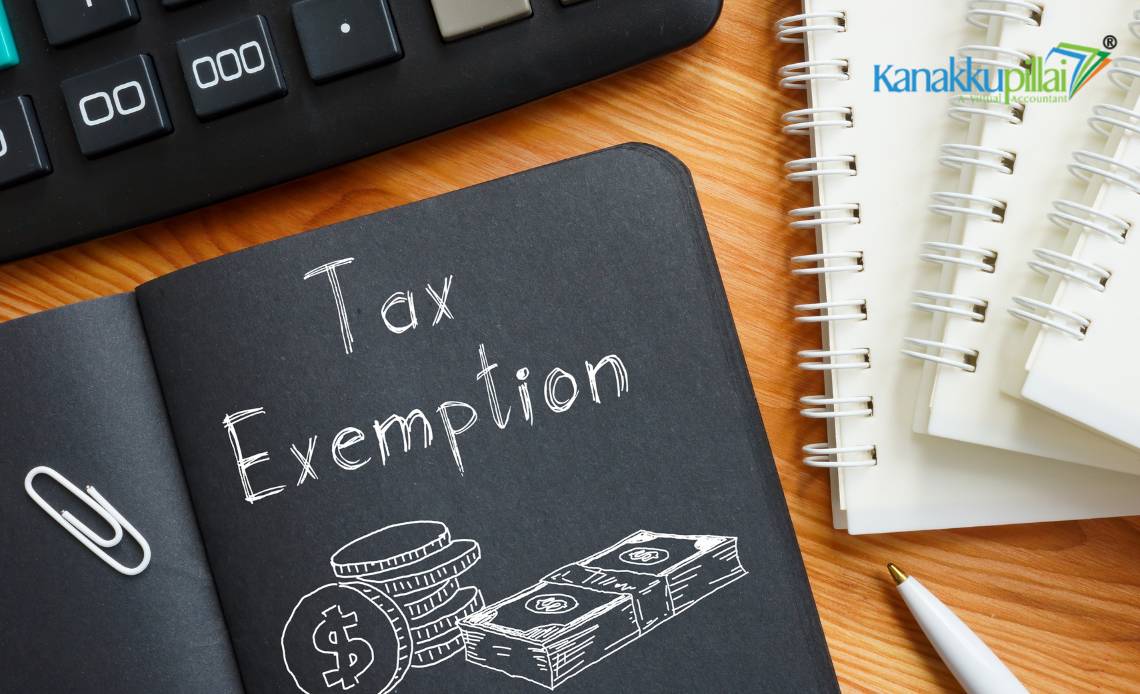Starting a new business is an exciting and joyful journey, but it comes with many financial responsibilities and challenges. To encourage the growth of innovation and help new startups grow, the Indian government offers various opportunities for tax benefits. One such benefit is the Section 80IAC exemption under the Income Tax Act, 1961. This provision allows eligible startups to claim a 100% income tax exemption for 3 consecutive financial years out of the first 10 years since incorporation.
In this article, we will discuss in simple terms what Section 80IAC is, who can apply, and how to apply for the exemption step-by-step.
What is Section 80IAC?
Section 80IAC of the Income Tax Act provides a tax holiday to eligible startups. This means that if your startup qualifies, you don’t have to pay income tax on profits for three consecutive years, which can help you reinvest that money into your business.
Who Can Apply? (Eligibility Criteria)
To apply for the 80IAC exemption, your startup must meet certain conditions:
- Type of Entity: Must be a Private Limited Company or a Limited Liability Partnership (LLP).
- Incorporation Period: Should be incorporated between April 1, 2016, and March 31, 2025.
- Turnover Limit: The startup’s turnover should not exceed the limit of ₹100 crores in any financial year since incorporation.
- Innovation or Improvement: The startup must be working on innovative products/services, development, or improving existing services. It should have the potential to generate employment or wealth.
- Approval from DPIIT: The startup must be recognized by the Department for Promotion of Industry and Internal Trade (DPIIT).
- Not Formed by Splitting: The startup should not be formed by the process of splitting up or reconstructing an existing business.
Benefits of 80IAC Exemption
- Tax savings: 100% exemption of profits for any 3 out of the first 10 years.
- More cash: Helps businesses reinvest earnings into growth.
- Ease of scaling: Reduces the financial burden during the early years of business.
Step-by-Step Guide to Apply for 80IAC Exemption
Step 1: Incorporate Your Company
First, you must register your startup as a Private Limited Company or LLP with the Ministry of Corporate Affairs (MCA).
Step 2: Register on the Startup India Portal
- Go to the official website: https://www.startupindia.gov.in
- Create an account and log in.
- Click on “Recognition as a Startup”.
- Fill in the required details like:
- Company Name
- PAN Number
- Registered Address
- Directors’ details
- Nature of business
- Upload documents such as:
- Certificate of Incorporation
- PAN Card
- Brief about your business/idea
- Website link, if available
- Details of any funding received
- Submit the form and wait for DPIIT recognition.
Once DPIIT approves your application, you will receive a Certificate of Recognition.
Step 3: Apply for 80IAC Tax Exemption
Once you have the DPIIT certificate, you can apply for the 80IAC exemption through the same portal.
- Log in to the Startup India portal.
- Go to “Tax Exemption under Section 80IAC”.
- Fill out the application form and provide details such as:
- Business model
- Innovation details
- Revenue model
- Employment generation plan
- Upload the required documents:
- DPIIT Recognition Certificate
- Incorporation certificate
- MOA/AOA (for companies)
- LLP agreement (for LLPs)
- Annual accounts and ITR filings (if any)
- Pitch deck or brief presentation
- Declaration that your business is original and not formed by splitting or reconstruction
- Submit the application.
Step 4: Wait for Approval
The application will be verified by the Inter-Ministerial Board (IMB). If satisfied, they will approve your startup for the 80IAC tax exemption.
You will get a letter of approval from the designated authority, which should be kept for your records and used while filing ITR to claim the tax holiday.
Important Tips for a Smooth Application
- Be honest and clear: When writing about your business idea, explain how it is innovative and different.
- Keep documents ready: Prepare all required documents in PDF format before starting the application.
- Check email regularly: You may receive requests for additional information or clarification.
- Use professional help: Consider consulting a CA or legal expert for assistance in filing.
Common Mistakes to Avoid
- Wrong entity type: Only Private Limited Companies and LLPs are eligible. Sole proprietorships and partnerships are not.
- Late application: Apply within 10 years of incorporation. Also, apply early to maximize the benefit.
- Incomplete details: Missing documents or unclear business descriptions can lead to rejection.
Conclusion
Section 80IAC exemption is a great opportunity for Indian startups to save on taxes and use that money to grow. By following the right procedure and preparing your application carefully in a prescribed manner, you can take full advantage of this scheme.
It may seem complicated at first, but with the Startup India platform and a clear business idea, the process is quite smooth. Always keep your focus and engagement on innovation and building a strong company, and the tax benefits will follow.
If you’re planning to start a business or have already started one recently, don’t miss out on the 80IAC exemption. It can make a big difference in your startup’s financial journey.





